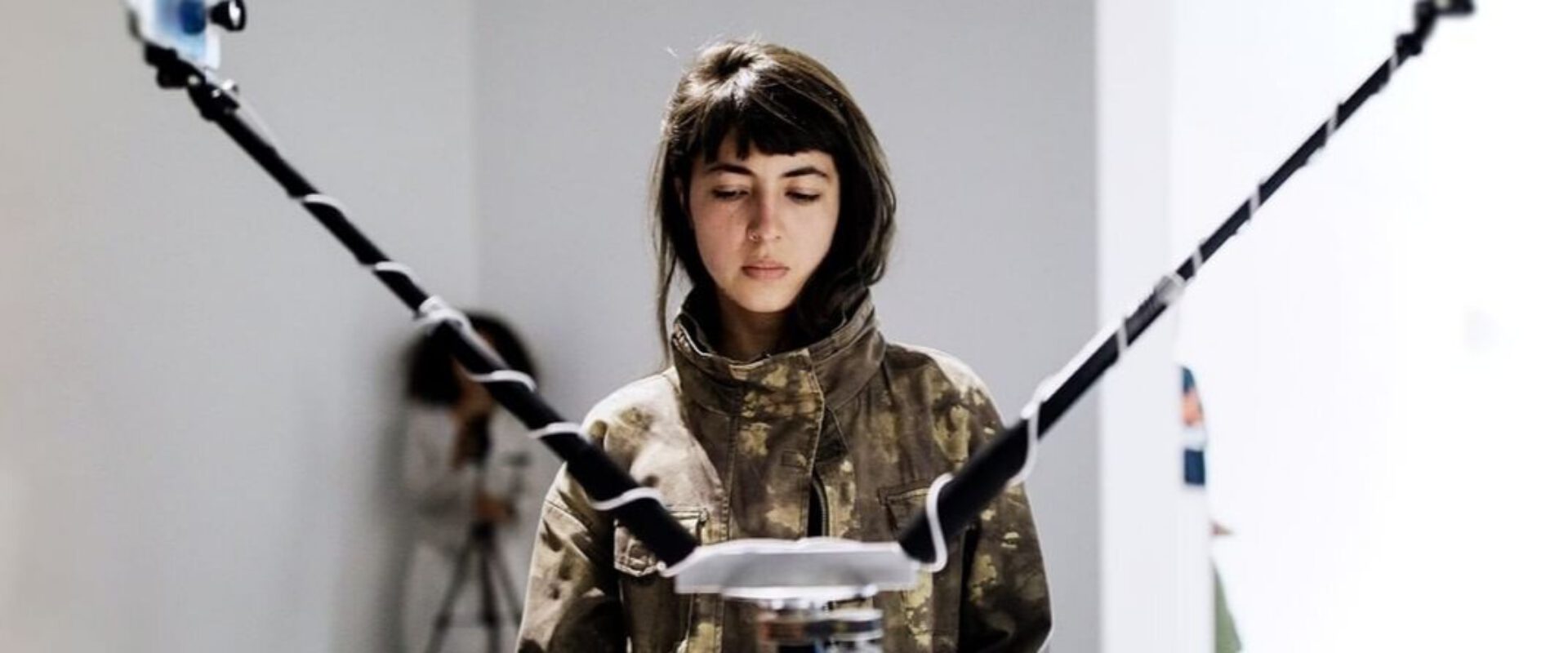 Stories
Stories
Art as an Explosive Device: An Interview with Paula Chaves
12 November 2019

by Lies Mensink
For director, choreographer and activist Paula Chaves art and politics are inextricably entwined. As part of the 3Package Deal between Veem House for Performance, De Balie, and De Ateliers Chaves works under the coalition of ‘Engaged Art’. Chaves: “Here I make ‘engaged art’. Coming from my history I was like: ‘oh I did not know that art is disengaged’. I want to twist it around: I am doing art, and there is such a thing as disengaged art.” Chaves’ new work OMNI TOXICA is an elaborate socio-political reflection. Through researching the history of the coca plant, this piece addresses neocolonialism, capitalism, and what they speak of as the “Coca Cocaine Complex.”
Chaves creates the work OMNI TOXICA with performer and choreographer Thais Di Marco. They met in Amsterdam one year ago. Both coming from a legacy of politicized art movements in Latin America, Chaves from Bogotá and Marco from São Paulo, they fell in love with each others art practice at first sight. Chaves: “I was fascinated and could totally relate to the way in which Thais deals with art making and aesthetics. Her position as an artist, her vision. I think she felt the same, we were like: ‘Oy, I see myself in you.’ That’s so weird and special you know…”
OMNI TOXICA traces the history of coca: from the magical green plant of the indigenous people to the whitewashed and capitalist daughter, cocaine. “There is a beautiful analogy between the coca plant and colonialism, because the coca is a plant that has gone through this process of colonization: of being stolen, extracted, killed and white-washed for the sake of profit.” Through the history of coca, Chaves shows how neocolonialism works: “how illegal economies and legal economies are intertwined, connected and maybe not so different.”
The history of coca crosses the distance between two seemingly different worlds and links them as one. “This plant contains all this complex history. It really manages to connect the power relation between the North and the South, that I often find really hard to make in my work. It brings in a reflection that is honoring where I come from and being very valid and important within this context of Europe and the Netherlands. Because the Netherlands has a huge role in this…” Chaves suddenly stops: “But you have to come and see the show to get to know more.”
For OMNI TOXICA Chaves and Marco are working with a method called: performative journalism, which Chaves has developed. “Recovering memories is an important part of the battle that we are fighting within the counter culture movements in Colombia, Brazil, and the Netherlands. Bringing the histories that are not being told by mainstream media.” Chaves speaks of public interest, which is disguised, or complexified, and thereby the people don’t have the information to be able to determine what in fact is in the publics’ interest. Her aim is to let the audience reclaim a sense of agency: “in that sense it is a political act to say that this information belongs to everyone, giving the right for people to hold the knowledge that belongs to them, that frame and dictates their modes of existence.”
“Raising socio-political awareness, allowing for critical autonomous thinking that’s what I fantasize upon. This is what drives me to reclaiming the space of the theatre, of art making, of performance. To look for ways of activating the audience.” Chaves is an activist, it inspires her art making, but she sees it as a practice she does parallel to art. For Chaves the theatre is a space that has an activating potential: “it is one of the only few spaces that is not mediatized. There is a really beautiful opportunity to brew things collectively and think about modes of existence collectively to break the individuality we are subjugated to within neo-liberal thinking.”
In the theatre space Chaves is able to link the micro to the macro realms of life. The micro as the personal, the macro as society. Chaves too is involved on a personal level: “I do a movement in the piece: I put a gun to myself and I put a gun to the audience. I’m also putting out there how dirty I sometimes feel, how unethical, how frustrated I feel that no matter what I do I’m complicit of a system I don’t want to support. Locked inside neoliberal logics at times. Intoxicated by this system… that’s the TOXICA of the piece!
OMNI TOXICA is not the cliché lecture of a stereotypical activist, says Chaves. “It is not that at all, it is full of humor, confrontation, there are entertainment aspects. It is doing several movements in the same time. Attacking different fronts simultaneously. I think it creates an experience that activates political thinking in the audience not just from a cognitive political perspective but from an affective and embodied one. It is combining things so that it creates a bomb as Thais beautifully articulated during one of our rehearsals.” Chaves’ desire of art as an explosive device shines through. Art that radically transforms. Art that is above all engaged.
